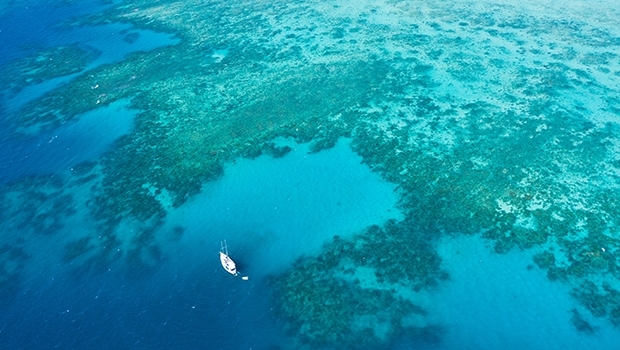Oceans across the world continue to be under threat from pollution and other destructive human activities.
Efforts continue to be made globally to save these oceans with activists pushing for more action from countries including those in Africa.
That is what the Commonwealth Blue Charter is designed to do – committing all 53 member countries within the Commonwealth to work together to solve crucial ocean related challenges.
The charter was agreed unanimously by leaders in April 2018.
Since then 12 countries which the commonwealth secretariat calls ‘champion’ countries have been rallying fellow members to save the oceans.
Their advocacy is built around “nine key areas, including marine pollution, ocean acidification and the sustainable blue economy.”
Commonwealth Secretary-General Patricia Scotland has said that “We are determined for our collective engagement on the Commonwealth Blue Charter to focus on practical action, and for our response to be guided principally by those who experience most acutely the difficulty and trauma of ocean and climate-related challenges.
They will be further supported by the acuity and knowledge of all the partners we can find, with the emphasis always on action.”
Last week member countries met in London to discuss ways of making the Blue Charter effective and results oriented.
At the #Commonwealth #BlueCharter and @BloombergDotOrg #VibrantOceans partnerships event, @PScotlandCSG delivers message of hope on #ocean and #climatechange challenges:
“Human ingenuity got us into this mess and human ingenuity can get us out of it!”#Innovation #Partnerships pic.twitter.com/Ijn55CiC5h
— The Commonwealth (@commonwealthsec) June 20, 2019
Africa’s role
Mauritius is one of 12 countries that has stepped forward to lead nine ‘action groups’ under the Blue Charter.
The country is Co-championing the area of “coral reef protection and restoration along with Australia and Belize”.
Assistant Permanent Secretary at the Ministry of Ocean Economy, Marine resources, Fisheries and Shipping of Mauritius, Bibi Swaleha Gungadeen said “The Commonwealth Blue Charter provides a platform to increase the visibility of what Mauritius has been doing in the area of coral reef protection and restoration.
Sharing knowledge, experience and technologies with other members of our action group is also extremely useful.
Another African country championing the area of marine protected areas is Seychelles.
Principal Secretary of the Department of Environment at the Ministry of Environment, Energy and Climate Change of Seychelles, Alain de Comarmond said in London that “Small island developing states like Seychelles are the most vulnerable to climate change and ocean challenges.
However, we also aspire to grow and develop, so it is important that we continue to protect the ocean and manage its resources sustainably.”
Championing the area of sustainable blue economy is Kenya.
The head of delegation from the Ministry of Foreign Affairs of Kenya, Salim M. Salim said “The Commonwealth Blue Charter All Champions meeting has provided the time and space for Kenya to once again demonstrate its leadership role in championing the sustainable blue economy.
“The blue economy is the future, and as the Commonwealth, we must work together to find ways to take advantage of the ocean’s vast resources in a sustainable and responsible manner.”
Rallying all nations
Action groups include: Aquaculture (led by Cyprus), Coral Reef Protection and Restoration (co-led by Australia, Belize, Mauritius), Ocean Observations (Canada), Ocean Acidification (New Zealand) and Mangrove Restoration (Sri Lanka).
The rest are Marine Plastic Pollution (United Kingdom, Vanuatu), Marine Protected Areas (Seychelles), Blue Economy (Kenya), and Ocean and Climate Change (Fiji).
Commonwealth Head of Oceans and Natural Resources, Nicholas Hardman-Mountford said “The Commonwealth Blue Charter fills the gap between high level global commitments and concrete cooperation on the ground, where member countries can help, inspire, motivate, and learn from each other, in order to achieve our shared ocean goals.
The next Commonwealth Heads of Government Meeting will take place in Rwanda in June 2020.
Source: Africafeeds.com



